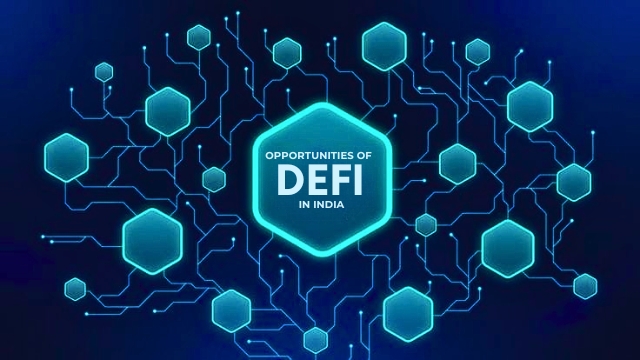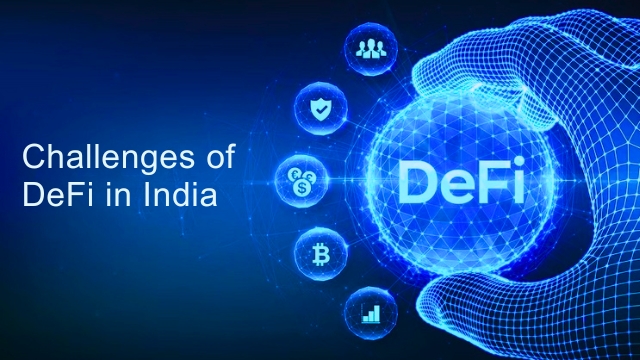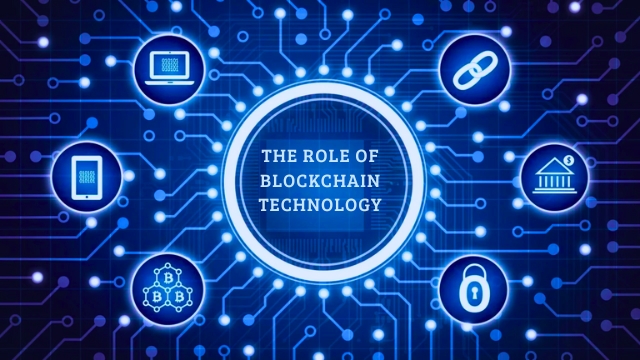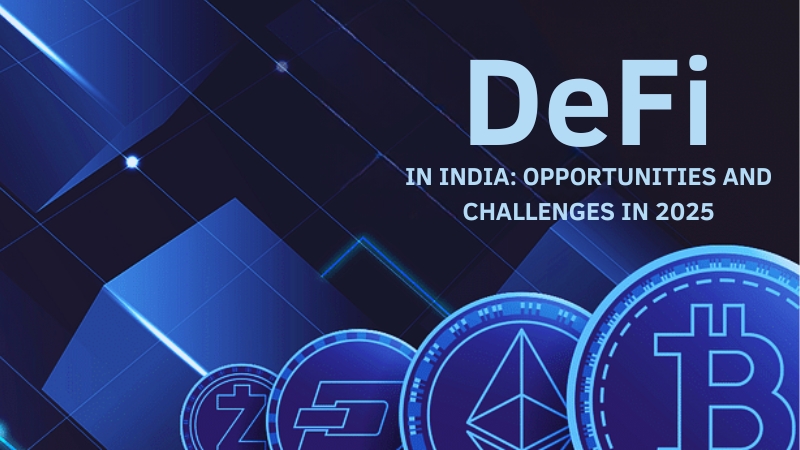The rapid evolution of Decentralized Finance (DeFi) is reshaping the financial landscape worldwide, and India is no exception. As 2025 approaches, DeFi presents both promising opportunities and complex challenges for the Indian economy. With its potential to democratize financial services, reduce costs, and improve accessibility, DeFi holds the power to revolutionize India’s financial ecosystem. However, regulatory uncertainties, technological barriers, and cybersecurity risks pose significant hurdles. This article delves into the multifaceted world of DeFi in India, highlighting its opportunities, challenges, and future prospects.
Decentralized Finance (DeFi) in India 2025
Decentralized Finance (DeFi) in India is poised to transform traditional financial systems by leveraging blockchain technology. By eliminating intermediaries, DeFi offers faster, cheaper, and more transparent financial services. In 2025, India’s growing digital economy and tech-savvy population are expected to accelerate DeFi adoption, creating new opportunities for both individuals and businesses. However, navigating the regulatory landscape and addressing technological limitations will be crucial for sustainable growth.
Opportunities of DeFi in India

Financial Inclusion for the Unbanked
One of the most significant opportunities DeFi presents is enhancing financial inclusion. With over 190 million unbanked adults in India, DeFi platforms can provide access to essential financial services without the need for traditional banking infrastructure. Through decentralized lending, savings, and insurance platforms, individuals in remote areas can participate in the financial ecosystem, fostering economic growth and reducing poverty.
Lower Transaction Costs and Faster Payments
DeFi eliminates intermediaries, resulting in lower transaction costs and faster payments. Traditional cross-border transactions are often slow and expensive due to multiple intermediaries and currency conversions. DeFi platforms, however, enable instant and cost-effective transfers, making them ideal for remittances and international trade. This can significantly benefit India, which receives one of the highest volumes of remittances globally.
Access to Global Capital Markets
DeFi opens up global capital markets to Indian businesses and investors. By using decentralized exchanges (DEXs) and tokenized assets, individuals can invest in international stocks, bonds, and commodities without geographical restrictions. This democratization of investment opportunities can boost economic growth and empower small and medium-sized enterprises (SMEs) to access funding previously limited to large corporations.
Innovation and Entrepreneurship
India’s vibrant startup ecosystem stands to benefit from DeFi’s innovative potential. Entrepreneurs can create decentralized applications (dApps) that address specific financial needs, from peer-to-peer lending platforms to decentralized insurance services. By leveraging blockchain technology, startups can build trustless systems that operate transparently and efficiently, attracting both domestic and international investors.
Challenges of DeFi in India

Regulatory Uncertainty
One of the most significant challenges facing DeFi in India is regulatory uncertainty. While the government has shown interest in blockchain technology, the legal status of cryptocurrencies and DeFi platforms remains unclear. Regulatory ambiguity can deter investors and businesses from entering the DeFi space, hindering innovation and growth. Clear and supportive regulations are essential to foster a thriving DeFi ecosystem while ensuring consumer protection and financial stability.
Cybersecurity Risks and Fraud
DeFi platforms are vulnerable to cybersecurity threats and fraudulent activities. Hacks, smart contract vulnerabilities, and phishing attacks can result in substantial financial losses. Ensuring robust cybersecurity measures and implementing comprehensive risk management frameworks are critical to building trust and safeguarding users’ assets. Educating users about potential risks and best practices is also essential to prevent exploitation.
Technological Barriers and Digital Literacy
India’s digital divide poses a significant challenge to DeFi adoption. While urban areas have high internet penetration and digital literacy, rural regions often lack the infrastructure and skills needed to access DeFi services. Bridging this gap requires investments in digital infrastructure, education, and awareness programs to ensure that all citizens can benefit from DeFi’s advantages.
Scalability and Interoperability
Scalability and interoperability are key technical challenges for DeFi platforms. As the number of users and transactions increases, networks can become congested, leading to slower processing times and higher fees. Ensuring that DeFi platforms can scale efficiently while maintaining security and decentralization is essential for long-term success. Additionally, enabling interoperability between different blockchain networks can enhance the functionality and accessibility of DeFi services.
Regulatory Landscape in 2025
By 2025, India’s regulatory framework for DeFi is expected to evolve, balancing innovation with consumer protection. Regulatory bodies such as the Reserve Bank of India (RBI) and the Securities and Exchange Board of India (SEBI) are likely to introduce guidelines that address the unique characteristics of DeFi while mitigating risks. Collaboration between regulators, industry stakeholders, and technology experts is essential to create a regulatory environment that fosters innovation while ensuring financial stability and security.
The Role of Blockchain Technology

Blockchain technology is the foundation of DeFi, enabling secure, transparent, and immutable transactions. In India, blockchain adoption is gaining momentum across various sectors, including finance, healthcare, and supply chain management. As blockchain technology continues to mature, it will play a crucial role in enhancing the efficiency and security of DeFi platforms, driving their widespread adoption.
Future Outlook: DeFi in India Beyond 2025
The future of DeFi in India is promising, with significant growth expected beyond 2025. As regulatory frameworks become more defined and technological advancements address current challenges, DeFi platforms will become increasingly accessible and user-friendly. The integration of artificial intelligence (AI) and machine learning (ML) can further enhance DeFi services, offering personalized financial solutions and improving risk management. Additionally, partnerships between traditional financial institutions and DeFi platforms can create hybrid models that combine the benefits of both systems, driving greater adoption and innovation.
Conclusion
Decentralized Finance (DeFi) in India presents a transformative opportunity to reshape the financial landscape, offering greater accessibility, lower costs, and enhanced transparency. As 2025 approaches, overcoming regulatory, technological, and cybersecurity challenges will be crucial for realizing the full potential of DeFi. With a clear regulatory framework, robust infrastructure, and widespread digital literacy, India can position itself as a global leader in the DeFi revolution, driving economic growth and financial empowerment for all.
Frequently Asked Questions About Decentralized Finance (DeFi) in India
Q1. What is Decentralized Finance (DeFi)?
Answer: DeFi refers to a financial system that operates without intermediaries, using blockchain technology to provide transparent and secure financial services such as lending, borrowing, and trading.
Q2. How can DeFi benefit India’s economy?
Answer: DeFi can enhance financial inclusion, reduce transaction costs, improve access to global capital markets, and foster innovation, driving economic growth and empowering individuals and businesses.
Q3. What are the main challenges facing DeFi in India?
Answer: The key challenges include regulatory uncertainty, cybersecurity risks, technological barriers, and scalability issues, which need to be addressed to ensure sustainable growth.
Q4. Is DeFi legal in India?
Answer: As of 2025, the regulatory status of DeFi in India is evolving. Clear guidelines from regulatory bodies like the RBI and SEBI are expected to provide a framework that supports innovation while ensuring financial stability and consumer protection.
Q5. How can individuals participate in DeFi?
Answer: Individuals can access DeFi services through decentralized platforms that offer lending, borrowing, trading, and investment opportunities. Digital literacy and awareness are essential for safe and effective participation.
Disclaimer:
This blog post is for informational purposes only and does not constitute financial, legal, or investment advice. We do not guarantee accuracy, reliability, or security. Any actions taken based on this content are at your own risk. Always conduct your own research and consult a professional before making decisions.

